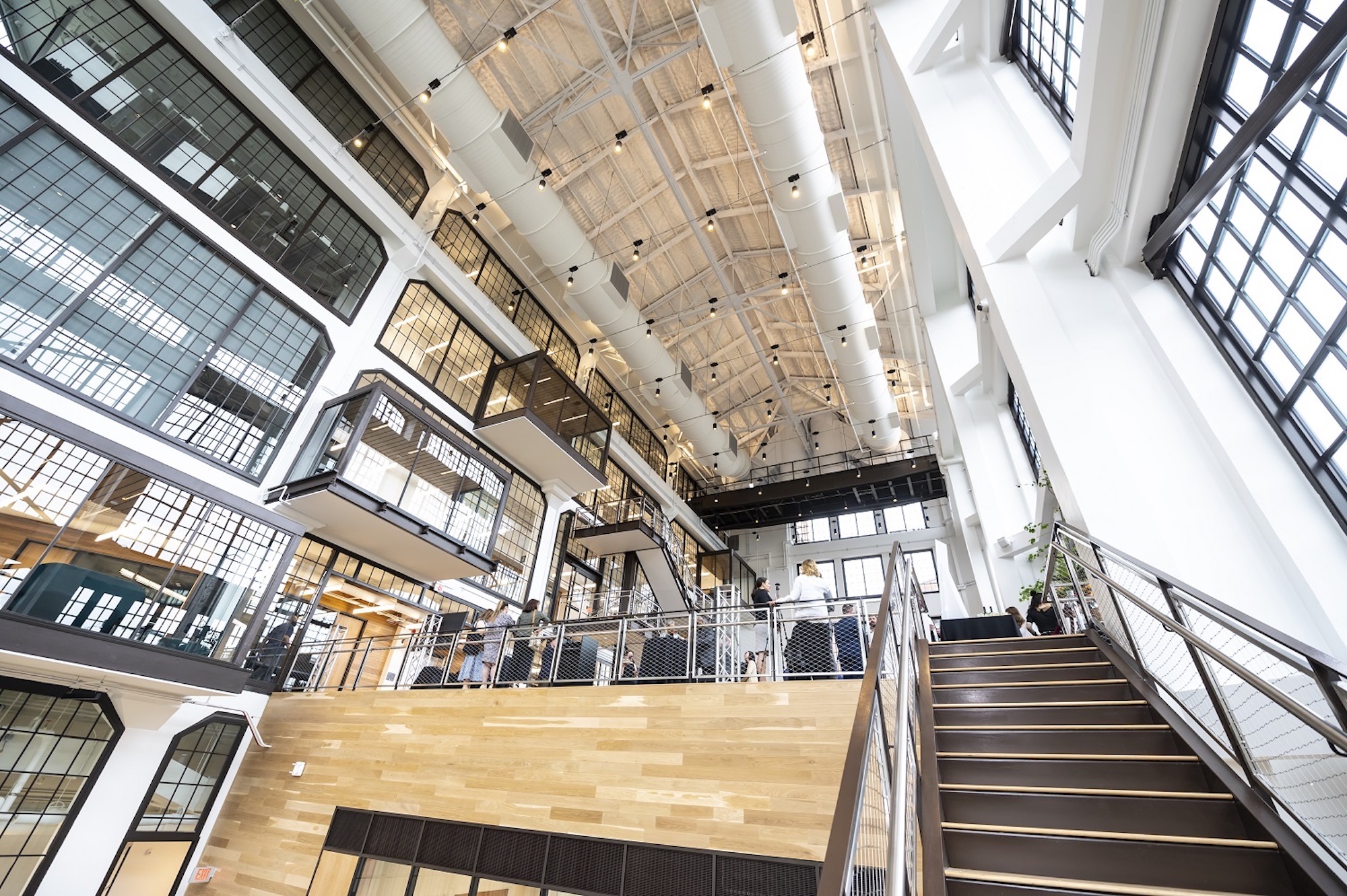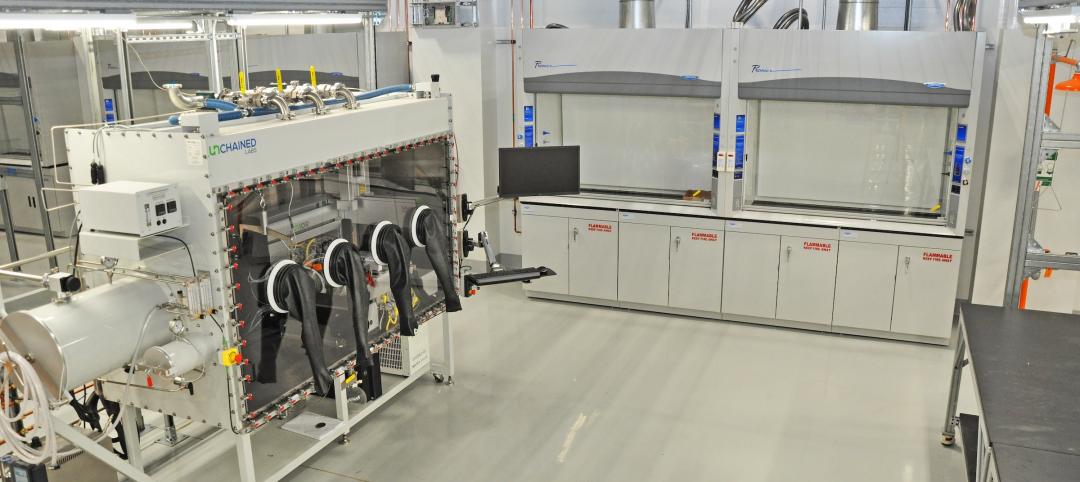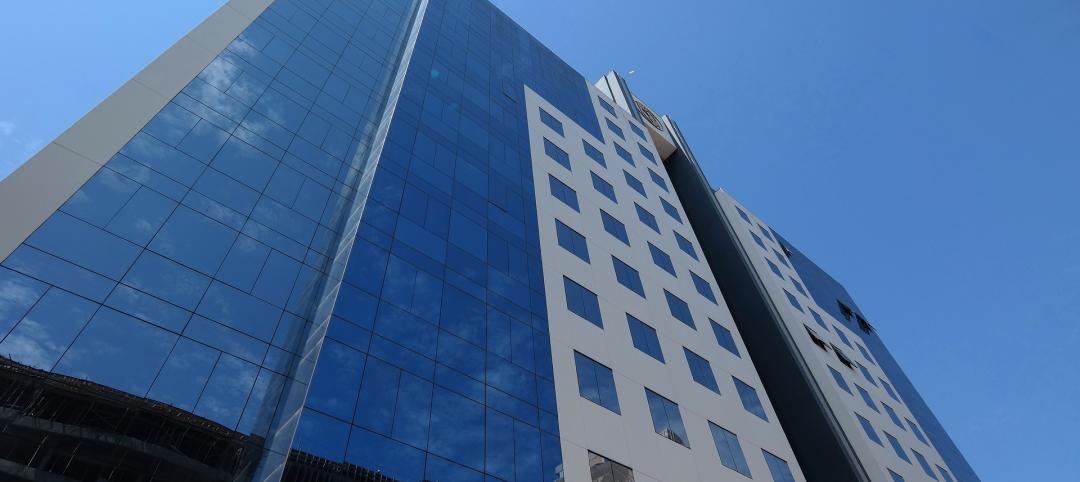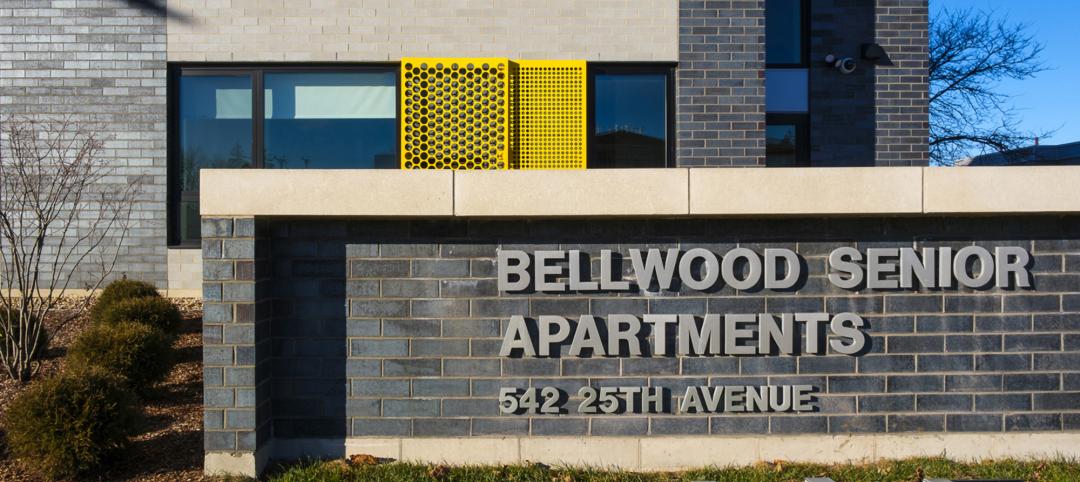Today, The Assembly is a state-of-the-art life sciences research and innovation facility. But the century-old building began as a Model-T assembly line and showroom for the Ford Motor Company in the Bloomfield neighborhood of Pittsburgh.
Developed by Wexford Science & Technology, The Assembly opened earlier this year and more recently achieved LEED Gold certification for its design, construction, and operations practices, which focused on improving environmental and human health. The Assembly is the University’s 18th project to earn a LEED certification since 2005, when it received its first LEED Gold certification for the McGowan Institute of Regenerative Medicine.
The newest LEED Gold certification aligns with the school’s and the community’s larger sustainability efforts, including the Plan for Pitt, the Pitt Sustainability Plan, and a commitment to third-party certified green buildings. The university intends to reach carbon neutrality both on- and off-campus by 2037.
Designed by ZGF and built by Turner Construction, The Assembly diverted nearly 90% of construction waste from the landfill. Of its renovation materials, 56% were regional and 32% recycled. Close to public transit, The Assembly provides bicycle storage and changing rooms, as well as 30 electric vehicle chargers.
The Assembly is part of a 355,000-sf life science redevelopment complex in the former Ford plant. The research taking place at The Assembly includes cancer biology and immunology, among other areas.
Constructed in 1915, the Ford Motor Company Assembly Plant housed Model-T production, showroom, and sales until 1932. As a dealership, it remained in business until 1953, then sat largely vacant. In 2018, the original building was named to the National Register of Historic Places, and the University of Pittsburgh and Wexford acquired the property and announced redevelopment plans.
On the Building Team:
Developer: Wexford Science & Technology
Capital partner: Ventas
Design architect and architect of record: ZGF Architects
MEP engineer: AEI
Structural engineer: Thornton Tomasetti
Construction: Turner Construction
Related Stories
Adaptive Reuse | Mar 26, 2024
Adaptive Reuse Scorecard released to help developers assess project viability
Lamar Johnson Collaborative announced the debut of the firm’s Adaptive Reuse Scorecard, a proprietary methodology to quickly analyze the viability of converting buildings to other uses.
Adaptive Reuse | Mar 21, 2024
Massachusetts launches program to spur office-to-residential conversions statewide
Massachusetts Gov. Maura Healey recently launched a program to help cities across the state identify underused office buildings that are best suited for residential conversions.
Adaptive Reuse | Mar 15, 2024
San Francisco voters approve tax break for office-to-residential conversions
San Francisco voters recently approved a ballot measure to offer tax breaks to developers who convert commercial buildings to residential use. The tax break applies to conversions of up to 5 million sf of commercial space through 2030.
Sustainability | Mar 13, 2024
Trends to watch shaping the future of ESG
Gensler’s Climate Action & Sustainability Services Leaders Anthony Brower, Juliette Morgan, and Kirsten Ritchie discuss trends shaping the future of environmental, social, and governance (ESG).
Adaptive Reuse | Mar 7, 2024
3 key considerations when converting a warehouse to a laboratory
Does your warehouse facility fit the profile for a successful laboratory conversion that can demand higher rents and lower vacancy rates? Here are three important considerations to factor before proceeding.
Urban Planning | Feb 5, 2024
Lessons learned from 70 years of building cities
As Sasaki looks back on 70 years of practice, we’re also looking to the future of cities. While we can’t predict what will be, we do know the needs of cities are as diverse as their scale, climate, economy, governance, and culture.
Adaptive Reuse | Feb 4, 2024
Corporate modernist buildings increasingly popular fodder for adaptive reuse projects
Beginning in the 1970s adaptive reuse projects transformed 19th and early 20th Century buildings into distinctive retail destinations. Increasingly, developers of adaptive reuse projects are targeting outmoded corporate buildings of the 1950s to 1980s.
Luxury Residential | Jan 30, 2024
Lumen Fox Valley mall-to-apartments conversion completes interiors
Architecture and interior design firm Morgante Wilson Architects (MWA) today released photos of its completed interiors work at Lumen Fox Valley, a 304-unit luxury rental community and mall-to-apartments conversion.
Senior Living Design | Jan 24, 2024
Former Walgreens becomes affordable senior living community
Evergreen Real Estate Group has announced the completion of Bellwood Senior Apartments. The 80-unit senior living community at 542 25th Ave. in Bellwood, Ill., provides independent living options for low-income seniors.
Adaptive Reuse | Jan 23, 2024
Adaptive reuse report shows 55K impact of office-to-residential conversions
The latest RentCafe annual Adaptive Reuse report shows that there are 55,300 office-to-residential units in the pipeline as of 2024—four times as much compared to 2021.

















